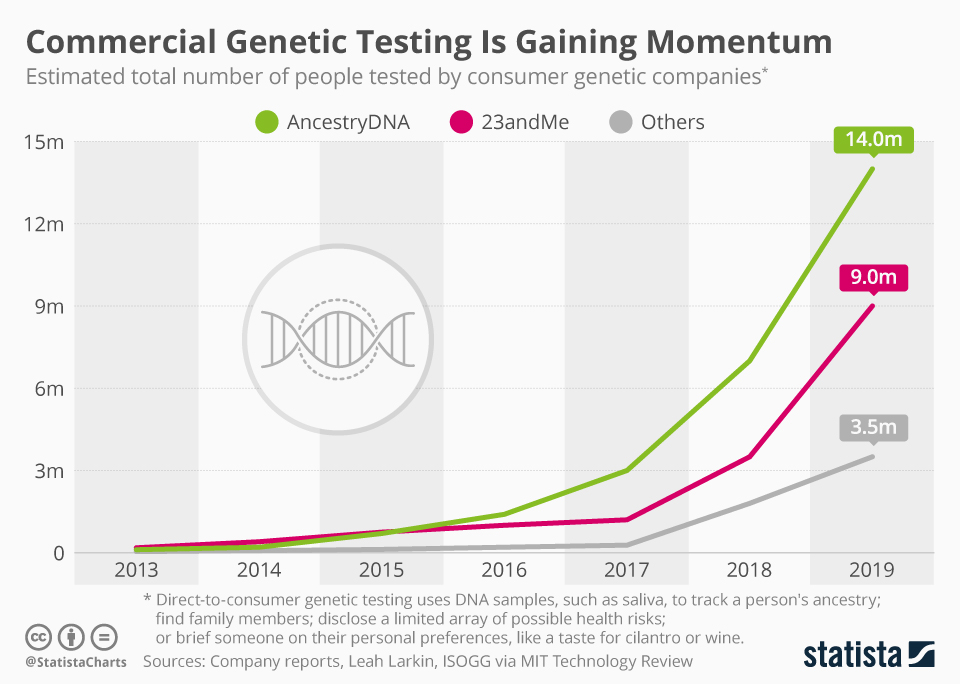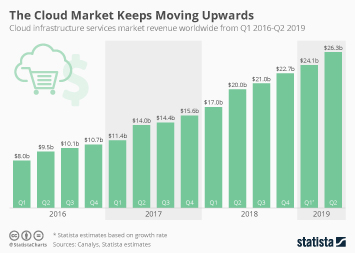Consumer genetic testing is growing in popularity, driven by the success of two companies: AncestryDNA and 23andMe. Estimates put together by the MIT Technology Review, estimate that in 2019 about 26 million testing kits were bought so far, with some projecting that within 2-years that number could sky-rocket to 100 million.
Direct-to-consumer genetic testing uses DNA samples, such as saliva, to track a person's ancestry; find family members; disclose a limited array of possible health risks; or brief someone on their personal preferences, like a taste for cilantro or wine. The practice has come into the spotlight recently over political controversy surrounding Senator Elizabeth Warren’s claimed Native American ancestry. The notorious Golden State Killer, a serial rapist and murder, who terrorized California in the 1970’s and 1980’s was recently found and convicted using DNA from a commercial genetic testing kit.
Controversy over how these companies keep and story the most fundamental data from corporate and government abuse has yet to be determined. A lesser known commercial genetic testing company came under fire when this past summer they changed their terms of service without notifying customers, allowing the government to access their genetic database without a warrant.




















